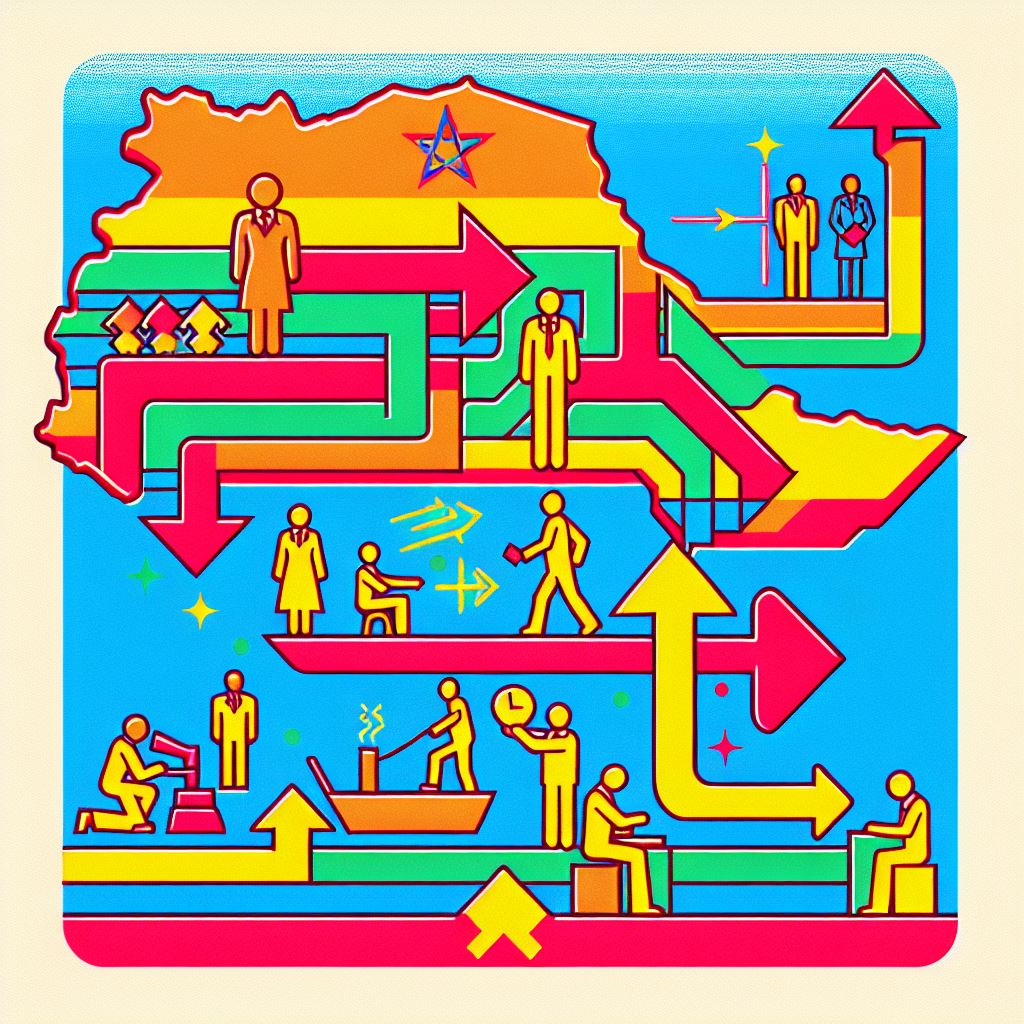The effect of training on employees’ work performance in civil service organizations
DOI:
https://doi.org/10.35564/jmbe.2025.0006Keywords:
Training, Employees, Performance, Job, organization, Learning, Behavior, Result, Kirkpatrick modelAbstract
Training plays a vital role in enhancing employee job performance. This study aims to examine the impact of training programs on job performance by analyzing the relationship between training and employee performance. A mixed-methods research approach was adopted, employing both quantitative and qualitative techniques. Specifically, a sequential mixed-methods design was utilized. Qualitative data were collected through purposive sampling, while stratified sampling was used to select participants for the quantitative phase. A total of 405 experts and middle-level managers were surveyed using a simple random sampling technique. Data were analyzed using SPSS, incorporating both descriptive and explanatory research designs. Correlation and regression analyses were conducted to assess the relationship between dependent and independent variables. The findings indicate that training has a statistically significant effect on job performance. However, two dimensions—learning and reaction—were found to be insignificant, while behavior and results emerged as the most influential factors affecting job performance. These results highlight the importance of focusing on behavioral outcomes and performance-based results when designing training programs.
Downloads
References
Armstrong, M. (2006). A handbook of human resource management practice (10th ed.). Kogan Page.
Beraza Garmendia, J. M. (2023). Development of transversal competences in dual training in the degree in BA. Journal of Management and Business Education, 6(1), 96–121. https://doi.org/10.35564/jmbe.2023.0006
Bernido, A., Palapas, M., Casera, S. E., Naparan, G., & Naparan, J. (2024). Describing the on-the-job training experiences of bachelor of science in management accounting students. Journal of Management and Business Education, 7(1), 90–115. https://doi.org/10.35564/jmbe.2024.0006
Campbell, J. P., & Wiernik, B. M. (2015). The modeling and assessment of work performance. Annual Review of Organizational Psychology and Organizational Behavior, 2, 48-72. https://doi.org/10.1146/annurev-orgpsych-032414-111500
Cole, G. A. (2002). Personnel and human resource management (5th ed.). Continuum.
Creswell, J. W., & Creswell, D. (2018). Research design: Qualitative, quantitative, and mixed methods approaches (5th ed.). Sage Publications.
Elnaga, A., & Imran, A. (2013). The effect of training on employee performance. European Journal of Business and Management, 5(4), 243-252.
Ethiopia Civil Service University Training Directorate Office. (2021). [Unpublished document].
Fuentes, E. A., Javier, K. D., Jimenez, K. L. ., & Naparan, G. (2024). An inquiry on the on-the-job training experiences of accounting interns. Journal of Management and Business Education, 7(3), 492–525. https://doi.org/10.35564/jmbe.2024.0028
Halwawi, A., & Hydar, A. (2018). Effects of training on employee performance: A case study of Bonjus and Khatib & Alami companies. International Humanities Studies, 5(2), 14-25.
Harrison, R. (2000). Employee development. Beekman Publishing.
Jiang, W., Zhao, X., & Ni, J. (2017). The impact of transformational leadership on employee sustainable performance: The mediating role of organizational citizenship behavior. Sustainability, 9(3), 377. https://doi.org/10.3390/su9030377
Kadakure, A., & Twum-Darko, M. (2024). Evolution of public administration and its implication to management and business education. Journal of Management and Business Education, 7(3), 463–476. https://doi.org/10.35564/jmbe.2024.0026
Kapur, R. (2020). Significance and meaning of training and development programs. [Unpublished manuscript].
Kirkpatrick, D. (1996). Revisiting Kirkpatrick’s four-level model. Training & Development, 1, 54-57.
Kuruppu, K., & Karunarathna, H. (2021). The impact of training on employee performance in a selected apparel sector organization in Sri Lanka. Global Journal of Management and Business Research, 21(2), 1-10. https://globaljournals.org/GJMBR_Volume21/2-The-Impact-of-Training-on-Employee-Performance-in-a-Selected-Apparel-Sector-Organization-in-Sri-Lanka.pdf
Licombe, L. C. (2018). Examining the impact of training and development on employees’ performance in the public sector: A case of Tanzania Telecommunication Company Limited (TTCL) (Master's thesis). Open University of Tanzania.
Massoudi, A. (2022). Reviving performance by adopting chameleon style of leadership. Journal of Management and Business Education, 5(1), 1–19. https://doi.org/10.35564/jmbe.2022.0001
Martin, R. (2015). How to begin with employee training. Retrieved from https://www.cleverism.com/ways-training-can-drive-employees-productivity/
Sonnentag, S. (2002). Psychological management of individual performance. John Wiley & Sons.
Saeed, M. M., & Asghar, M. A. (2012). Examining the relationship between training, motivation, and employees’ job performance. Journal of Basic and Applied Scientific Research, 2(12), 12782-12786.
Sendawula, K. (2018). Training, employee engagement, and employee performance: Evidence from Uganda's health sector. Journal of Cogent Business & Management, 5(1). https://doi.org/10.1080/23311975.2018.1421706
Sultana, A., Irum, S., Ahmed, K., & Mehmood, N. (2012). Impact of training on employee performance: A study of the telecommunication sector in Pakistan. Interdisciplinary Journal of Contemporary Research in Business, 4(6), 402-414.
Torrington, D., Hall, L., & Taylor, S. (2005). Human resource management (6th ed.). Prentice Hall.
Wright, P., & Geroy, D. G. (2001). Changing the mindset: The training myth and the need for world-class performance. International Journal of Human Resource Management, 12(4), 540-552. https://doi.org/10.1080/09585190123454
Yeh, H., & Hong, D. (2012). The mediating effect of organizational commitment on leadership type and job performance. The Journal of Human Resource and Adult Learning, 8(1), 20-31.
Villena Martínez, E. I., Rienda Gómez, J. J., Sutil Martín, D. L., & García Muiña, F. E. (2023). Serious board games for enhancing socioemotional skills and their impact on motivation in university students. Journal of Management and Business Education, 6(3), 488–508. https://doi.org/10.35564/jmbe.2023.0026

Downloads
Published
How to Cite
Issue
Section
License
Copyright (c) 2025 Journal of Management and Business Education

This work is licensed under a Creative Commons Attribution-NonCommercial-ShareAlike 4.0 International License.
License terms at: https://creativecommons.org/licenses/by-nc/4.0/legalcode



